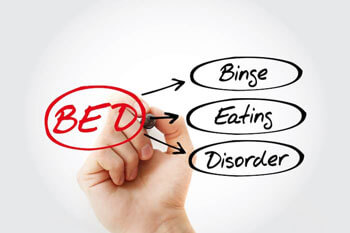 Being human is one of the most difficult ways to be born. Really, it sucks. Each day we are presented with a myriad of feelings that vary from elation to downright painful. And really difficult things happen. Houses get set on fire, mass shootings happens, people get attacked, violated… and to a less degree, our feelings get hurt, we embarrass ourselves, we fart in public, we get drunk and act stupid, we start fights with our wives and husbands for no good reason, we overeat, we binge, we purge, we have affairs, we starve ourselves, we don’t study for a test, we say the most embarrassing thing in front of a whole roomful of people, we stumble, fall or downright fail while giving a presentation, we say that we’re going to quit smoking but we don’t or we can’t, we say that we’re not going to bite our nails, but we do it anyway, we pick our nose, we scream at our kids, we scream at our mothers, we space out and go through a red light and hit another car, we steal something from the supermarket on purpose… we do a lot of imperfect and even effed up things. Because we’re human. We are all human, and the life of a human is a difficult one. We are filled with existential angst. And that’s how we were created. And that is not easy for anyone.
Being human is one of the most difficult ways to be born. Really, it sucks. Each day we are presented with a myriad of feelings that vary from elation to downright painful. And really difficult things happen. Houses get set on fire, mass shootings happens, people get attacked, violated… and to a less degree, our feelings get hurt, we embarrass ourselves, we fart in public, we get drunk and act stupid, we start fights with our wives and husbands for no good reason, we overeat, we binge, we purge, we have affairs, we starve ourselves, we don’t study for a test, we say the most embarrassing thing in front of a whole roomful of people, we stumble, fall or downright fail while giving a presentation, we say that we’re going to quit smoking but we don’t or we can’t, we say that we’re not going to bite our nails, but we do it anyway, we pick our nose, we scream at our kids, we scream at our mothers, we space out and go through a red light and hit another car, we steal something from the supermarket on purpose… we do a lot of imperfect and even effed up things. Because we’re human. We are all human, and the life of a human is a difficult one. We are filled with existential angst. And that’s how we were created. And that is not easy for anyone.
The first noble truth of Buddhism is that life is suffering. Everyone suffers just from being human. Everyone. Once we are able to accept that truth, we can transcend it. Not transcend it in that we can make suffering not happen, because suffering happens no matter what. However, part of what causes our intense suffering is somehow believing that we shouldn’t suffer. We often believe that we are alone in our suffering or that nobody else suffers like us. Nobody else is depressed, nobody else is having marriage troubles, nobody else made themselves throw up after their last meal vowing that it would be the last time, nobody else sits up all night worrying about their kids’ futures, nobody else lost their home, no one gambled away their life savings… Being human can be extremely painful a lot of the time. So in that, we have to hold ourselves not with pity, but with compassion, just for the simple reason that suffering is suffering and being human has an inherent amount of suffering that comes with it due to the way that we are wired to react to events and to our memory capacity.
I have been taking an eight week course up at Spirit Rock on Mindful Self Compassion based on the the work of Kristen Neff (if you haven’t read the book, it’s a great one!). I have always known that self-kindness was a deep, deep part of true recovery and have helped my clients practice it for years. However, Dr. Neff has the research to back it up. Research shows that self-compassionate individuals experience greater psychological health than those who lack self-compassion and that self-compassion is positively associated with social connectedness, life satisfaction, emotional resilience and a lower tendency for self-criticism, depression, anxiety and disordered eating. In fact, daily acts of self-compassion are an integral part of the 5 week program. The research shows that by practicing self-compassion daily, you can actually rewire your neural pathways to come to a place of kindness rather than self-reproach whenever you “mess-up.” (ie: binge, purge, say something stupid, get too drunk and dance on the tables at your cousin’s wedding then vomit then make out with your cousin’s new husband’s 70-year-old Uncle in front of everyone…) that rather than hating yourself, you can remember that you are human and have some tolerance for that very difficult plight that we all go through.
So what does this really mean and how do we practice self-compassion in daily life? Kristen Neff describes a *self compassion break. With this, you take a few moments to:
1. Take note of the fact that you are suffering (no matter what/why) and you tell yourself, ie: “this is suffering, I am suffering right now…”
2. You then acknowledge the pain of suffering ie: “this is really hard/this is so painful/ my heart hurts…” etc. use the language that feels most right to you.
3. Remind yourself that this is part of being human ie: “I am suffering, but I am not alone. Everyone suffers, this is okay and normal and part of the human experience…”
4. Treat yourself with the kind of kindness and compassion that you would a best friend or a child, put your hand on your heart, talk to yourself in loving, sweet words ie: “it’s okay for you to feel this way, it doesn’t take away from the person you are… this too shall pass… ” or whatever words you really need to hear, give them to yourself.
It’s not that you’re trying to change yourself or your feelings or never suffer again, but you’re giving some ease to the suffering by accepting it.
The trap of beating ourselves up when we are down makes everything so much worse. By being kind to ourselves, we have a chance of choosing the next right thing and not getting stuck in the cycle of pain. For instance, you can utilize mindful self compassion for binge eating if you wind up having a particularly bad binge/purge or binge episode, you might be used to beating yourself up afterward and hating yourself. However, if you can notice the suffering and remind yourself that you are suffering, and that it is hard and that you deserve compassion, you might have the strength to make a positive choice for yourself in the hours to come. A beating yourself up choice might be to continue your binge/purge episode for the rest of the day (week, month, etc) or to restrict in order to punish yourself. But when you walk away from the punishing behaviors and instead choose self compassion, you can make the choice for yourself that a loving person would make for you instead of a dictator. A compassionate choice might be to forgive yourself, take a walk and resume your food on a positive trajectory for the rest of the day. See How to recover from a binge for more ideas.
One of my favorite parts of my personal compassion practice is practicing loving kindness toward the people around me. Being kind, trying really, really hard to be even kinder than I instinctively am or to do more than what comes naturally to me has been extremely rewarding and nourishing for my soul. It also makes compassion for myself come with more ease. And if you think about it, when you are compassionate and extra kind to yourself and toward the others around you, you set a positive example for those around you and it sets off a chain of positivity in the world (which we so desperately need right now).
For more information on compassion practice, see http://self-compassion.org/
*listen to Kristin’s 5 minute self-compassion break here
On another note, many of you know that I live right in between San Francisco and wine country. I’m including here pictures to show you what the wildfires are doing to our skies right about now. Send love to Napa/Sonoma, we need it.
Online Binge Eating Treatment - LEARN MORE!
EVIDENCE BASED INTERVENTIONS THAT REWIRE YOUR BRAIN TO:
-
STOP BINGE EATING
-
AUTOMATICALLY MAKE HEALTHY CHOICES
-
GAIN A FEELING OF PEACE AND CALMNESS IN YOUR BODY
-
RECOVER FROM BINGE EATING FOR GOOD



 Follow
Follow
